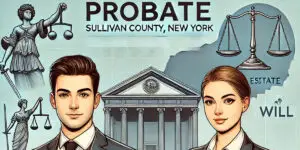Exploring the Legal Responsibilities of Parents in School Shooting Cases
Attorney Russell Morgan, founding partner at Morgan Legal Group, recently shared his expert analysis on the growing legal scrutiny around parental responsibility in school shooting incidents. In the case discussed, a 14-year-old shooter allegedly received a gun as a Christmas gift from his father despite being previously accused of making school threats. This case highlights critical questions about the culpability of parents and the evolving legal landscape regarding their accountability.
A Potential Case Against the Father
When asked whether this situation constitutes a strong case against the father, Morgan explained that there is a strong possibility of charges, indictments, and even convictions for involuntary manslaughter. “Parents are not usually held directly responsible for crimes their children commit,” Morgan stated, “but there are instances where they can be found at fault, especially if they were aware of potential risks and failed to take steps to prevent harm.”
Morgan emphasized that parental responsibility laws are designed to hold parents accountable for their children’s actions when they directly contribute to the criminal behavior, such as providing the weapons used in the crime. “Parents have both a legal and moral duty to prevent their children from causing harm to others,” Morgan noted. He cited the recent case of Jennifer and James Crumbley, the first parents of a mass shooter to be convicted of manslaughter for their negligence, as a precedent that could influence similar cases moving forward.
Discrepancies in Charges: Understanding the Legal Differences
Regarding the charges faced by Colt Gray, the alleged shooter, and his father, Morgan explained that the discrepancies are due to the son’s status as a minor. “Minors are held to a different standard than adults, often a lower one,” Morgan said. “This is why Colt Gray faces only four counts of felony murder, while his father faces additional charges, including Cruelty to Children for the harm caused to the victims.”
The father’s charges reflect a level of intent, suggesting he knew or should have known that providing his son with a firearm could result in harm. Morgan pointed out that this legal approach emphasizes the parent’s role in directly contributing to the tragic events.
Possible Defenses for the Father
When asked about potential defenses for the father, Morgan suggested that the father might argue he had no knowledge or involvement in the shooting or that the firearm used was not the one he provided to his son. “There has been no confirmation that the gun given as a gift was the weapon used in the shooting,” Morgan explained. “However, this defense may not suffice, as the father’s awareness of his son’s access to firearms is a critical factor.”
Morgan underscored that the intent factor is key in the court’s decision-making process, particularly if it’s proven that the father knew or should have known that his actions could lead to serious harm or death.
Family Environment and Broader Implications
Early reports indicate a troubled family environment, with the alleged shooter’s grandmother pointing to instability within the home as a contributing factor. Morgan noted that as more details about the family dynamics emerge, these factors could play a significant role in the legal proceedings.
“We’ll learn much more about this family’s circumstances, and unfortunately, many details may not be favorable,” Morgan said, highlighting the broader implications of the case on how the legal system addresses parental culpability in such tragic situations.
Conclusion
As legal standards evolve in response to school shootings, Morgan Legal Group continues to provide critical insights into the complexities of parental responsibility. Russell Morgan’s expertise sheds light on the challenges and legal nuances involved in holding parents accountable for their children’s actions.









